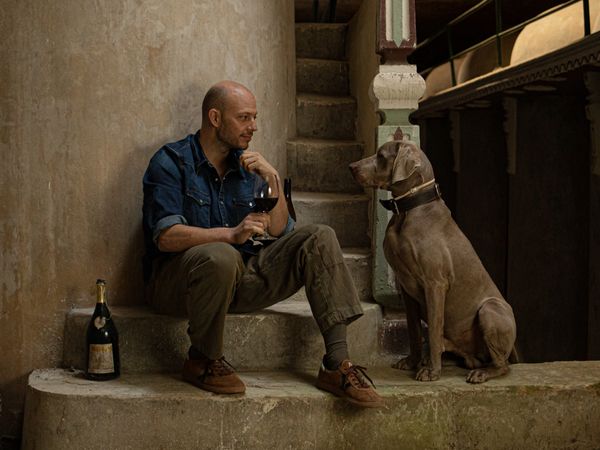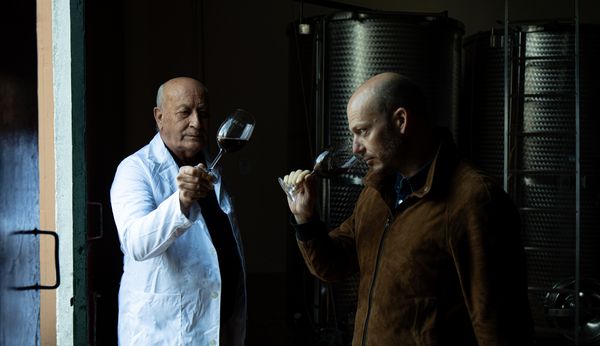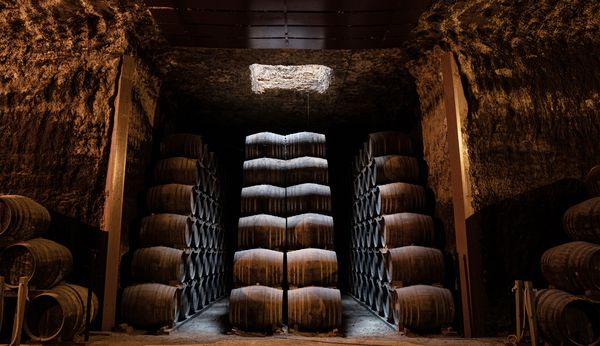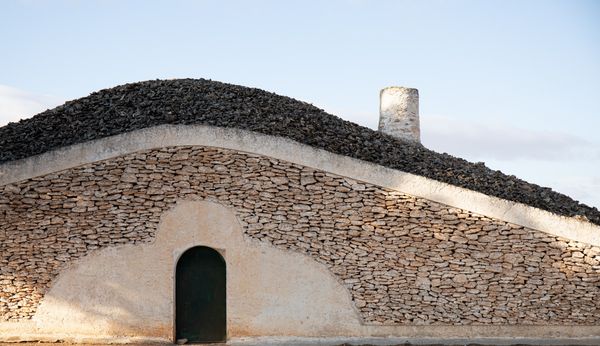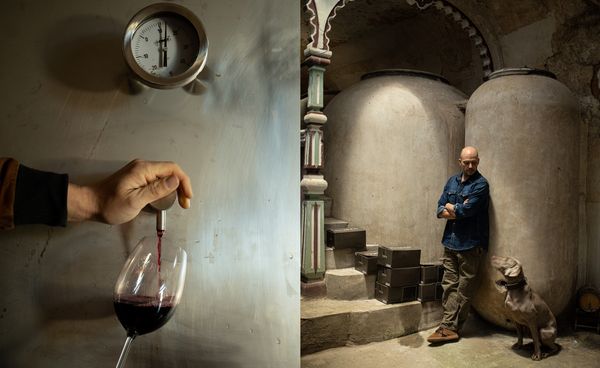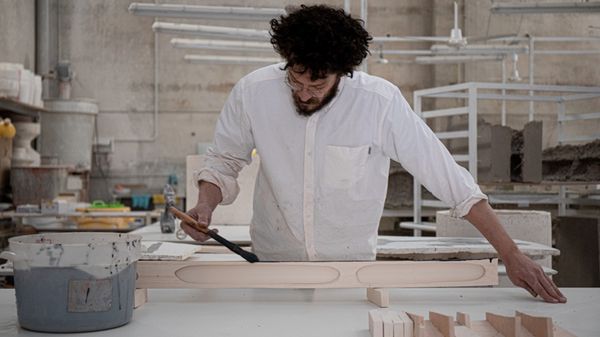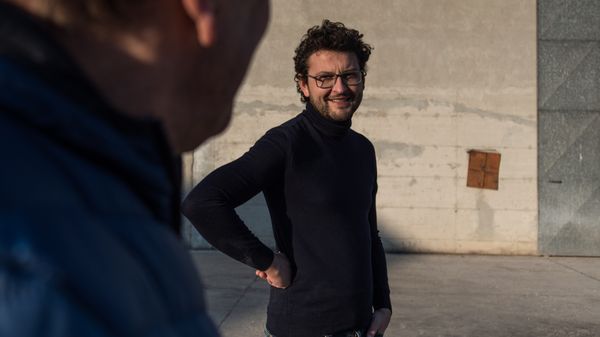
Respected by Gaggenau 2021
By Tom Parker Bowles
La Mancha, the heart of Spain, a place of low rain and vast plains, arid but fertile, searing in summer, but bitterly cold in the winter months. A land of castles, windmills and Don Quixote. It’s also one the largest wine producing regions in the world.
Although in terms of reputation and prestige, it’s not exactly up there with Bordeaux. Which is something Elías López Montero, the rather visionary talent behind Verum winemakers in Tomelloso, La Mancha, is determined to change.
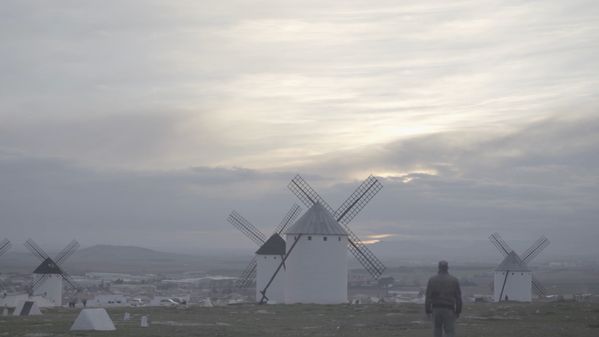

‘It’s not a region well-known for distinctive, quality wines,’ he admits. In fact, the vast majority of the grapes grown in the area are used to create low price, fairly forgettable generic table wines. As well as providing the raw materials for Brandy de Jerez. What Montero wants to do is to associate La Mancha with great wines once more. ‘When you go to Burgundy or Bordeaux, you know what you’re going to get. The same is true with Rioja, or Napa. All these regions have very clear identities. We are fighting to get the market to understand La Mancha’s true identity.’
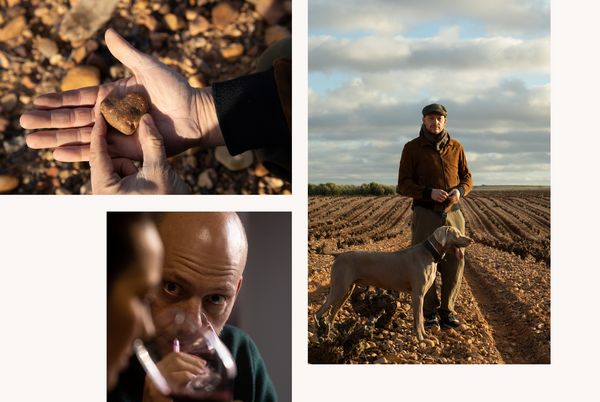

He’s warm and engaging, a softly spoken man training to be a master of wine. Yet he wears his knowledge lightly. ‘If you look at the world of wine,’ he says, ‘and all the countries and regions, you’ll never find a greater challenge for a winemaker than to create an original product from here in La Mancha.
‘We obviously have everything we need here to grow vines. You just need to have the right vision, the right way of doing things.’
Elías López Montero
And no one knows this region better than the López-Montero family. Nor has as much experience. Because they’ve been in the wine business for some time. 233 years, to be precise. ‘The first reference we have to the family business is in 1788. My father’s ancestors founded a winery and distillery in Tomelloso in the house where my father was born.’ He smiles. ‘Unfortunately, we don’t have a brand from that time’.
In 1963, Elías’ parents, Juan Antonio López Ramírez and María Victoria Montero established Altosa, a winery and distillery that continues to make and market wines and distilled spirits. But it was in 2005 when Maria Victoria, along with her daughter, Maria Belen, and sons Juan Antonio, Pedro Jose and Elías, created the organic Bodegas y Vinedos Verum, which encompasses the wines from the best vineyards and terroirs on their property.
When he first joined the family business, things were a little different. ‘I found that La Mancha viticulture had moved away from the traditional grape varietals of the region, Tempranillo for reds and Airén for whites, to more international types like Cabernet, Merlot and Sauvignon blanc. Now we pay more attention to the local grapes, but it took a lot of work to do that. In the meantime, I’m most worried about the old vines being replaced with more productive, new but non-traditional vines, which need more water.’

Sustainability is at the core of Verum’s philosophy. ‘Thinking about the future is so very important,’ he says. ‘To work out if we can still make the same wines in the future as we do now. Every year, more and more, we’re feeling the effects of global warming.’ He pauses, lost in thought. ‘Every year the harvest is coming earlier and earlier, you can feel it in the changes of climate. I’ve always been concerned with the future. When I started to make wine for my family, I was never thinking about making wine for myself, for my own success. I’ve always worried about creating a legacy for my family, with the grapes and vines, for the next generation. I think about it a lot. And not just for my family, but for the region that I love. I’m trying to create wines with identity and sense of place, to grow the vines with the minimum of intervention. To respect the land, and tradition.’
This respect, for the grapes and the vines too, is all important. ‘You want the environment in which they grow to be beautiful,’ he goes on. ‘And I really believe that the grapes taste much better when they’re grown in a better environment. It’s very simple. When it comes to organic food, we understand it easily. Terroir is everything, and the use of minimal chemicals and pesticides. It’s exactly the same for grapes.’
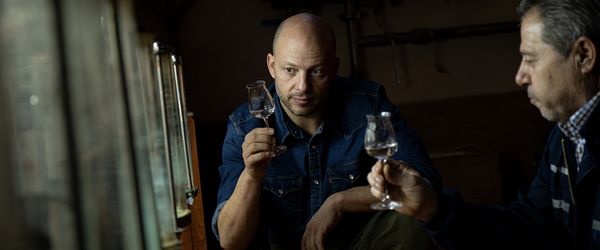
‘Working with these late grape varietals, we get natural freshness and can work with minimal intervention.’
Elías López Montero

Although the family has a number of vineyards and terroirs, there are two in particular that stand out. The first is La Tinada, with the oldest vines, going back to 1950. They grow the best-known, and most traditional grapes of the region, Tempranillo and Airén, at a relatively high altitude. Too often, these grapes have been used to make a mediocre product. Anonymous fillers, rather than grapes to be respected. Elías is determined that will change. ‘We grow without irrigation, in the traditional way, with very low yields and low density of plantation.’ The soil is very chalky and rocky, with a high concentration of minerals. The red, Reserva Familiar, is rich, aromatic and intense. While the white, Verum Airén de Pie Franco, is fresh, light and bursting with fruit.
But it’s at the El Romeral estate, their youngest, where you can really find the Verum vision for the future. The soil is similarly high in calcium carbonate, which is important to the character of their wines, the texture in particular. ‘Here,’ says Elías, ‘we focus on rediscovering regional, minority La Mancha grapes. Varietals such as Mazuelo, Garnacha, Albillo Real, Albillo Mayor, Moravia Agria, Tinto Velasco, Malvasía and Graciano. ‘All those grapes’ says Elias, ‘have something in common, in that they ripen very late. That means we avoid the summer heat, which normally directly affects the acidity, making the wine more flat. Working with these late grape varietals, we get natural freshness and can work with minimal intervention.’ The Ulterior Parcella No. 7 y 9, a white made with Albillo Real grapes, is honeyed on the nose, with notes of quince and almond, and a salty, dry finish. While the red Ulterior Graciano Paercela 17 is intense, sweet with the smoothest of tannins. The Ulterior Tinto Velasco Parcela 10 is also red, with big black fruits on the palate. All of them, a taste of La Mancha’s past. And the future.
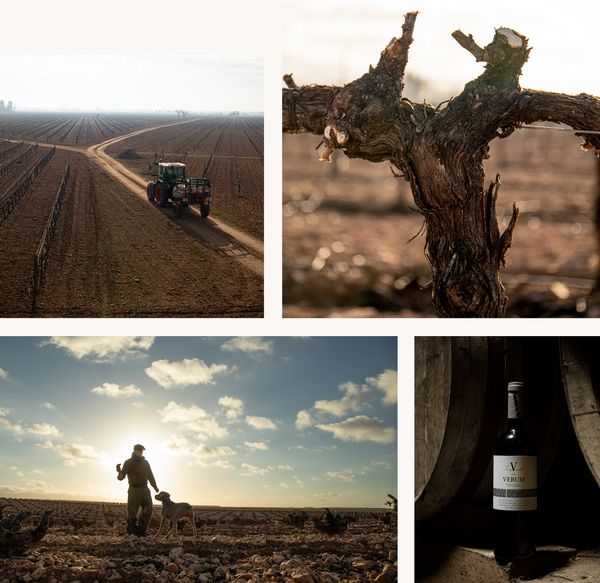

Another fascinating feature of his wines is the use of clay amphorae, or jars, in which he ages his wine. ‘We have nothing against the barrels,’ he says, ‘and we like to use them as well. But the amphoras are traditional, they help the wine breathe, and I think that brings identity, to use old tools that have been used in the region for many, many years. They are unique.’ Theirs are over 100 years old, and pretty big too. ‘There are no longer any ovens around to make them these days, so they’re also quite distinctive. It helps create that sense of place.’ In terms of flavour, they’re fairly neutral. Unlike oak, say, and its unmistakable heft. ‘They may make the tannins a bit more rounded but at the end, you are not adding other flavours that come from the oak. I’m always thinking about the profile of the wine, and what I want to achieve. I’ll use barrels if needed, and sometimes I’ll combine the two. It just depends on the final wine I want to achieve. If I believe it’s better to do it without oak, I will do 100% amphora.’
We talk about the importance of both tradition and technology. ‘At a certain point in history, the amphoras were technology! He laughs. ‘But now they are tradition. And I believe that some of the new technology we use today will be tradition in the next hundred years.’ And what about new technology? ‘When it comes to sustainability, there’s now technology to help the fermentation process in being better for the planet, the environment. To be able to reduce CO2 emissions. That’s why technology is so important for our industry. To think about the future. You need the technology and science, and we’re working on a project to reduce those emissions at the moment. But tradition and innovation – it’s a great combination.’

He’s the first to admit that he’s not the only producer trying to imprint La Mancha wines firmly in the hearts of wine lovers across the globe. ‘There are already brilliant wines coming from La Mancha, and there are many colleagues doing great wines at the moment. But as producers, we need to be a bit critical with ourselves. And we need to stop being negative and start thinking about more interesting proposals for the wine experts. And that’s what we’re trying to do, to shake this region up, to try to show other growers that it is possible to have another way. You have to see it from a global viewpoint.’
So why Verum? He was surprised that the name hadn’t been registered before. ‘It means truth. And it’s our philosophy to make wines with identity that express the truth of the land, the truth of the family history, and the truth of La Mancha wine. A trilogy of truth.’
Which is a big part of the reason why Sarah Abbott, MW and member of the Respected by Gaggenau Global Curator Board, saw Elías, and Verum, as such a good fit for Respected by Gaggenau. And put him on the shortlist. ‘I love how he’s finding what is valuable in the culture and bringing it back,’ she says. ‘For example, the traditional use of clay pots. He is a revolutionary, but also a restorer.’ The competition on the shortlist was tough, and each one a worthy entrant. But what we all loved was Elías’ long-term vision, his passion and his inspiration. It was impossible not to be enthused.
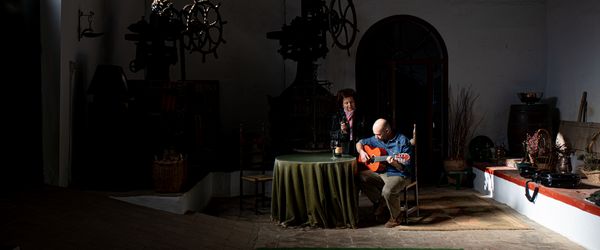
‘…he shows that anything is possible if you are determined to find beauty and create quality.’
Sarah Abbott, Respected by Gaggenau Global Curator

‘Elías is a pioneering and visionary winemaker re-writing the quality and profile of wines from Spain’s largest wine region,’ Sarah goes on to say. ‘He is a champion of indigenous and heritage grape varieties. A bold and inspiring innovator who is transforming the potential and reputation of wines from La Mancha – he shows that anything is possible if you are determined to find beauty and create quality.’ We all agreed. Which is why we selected him Respected by Gaggenau 2021 for Viniculture.
What does that mean to him? ‘I was so proud to be nominated for this accolade,’ he says modestly. ‘When I was first told about making it on the shortlist, and heard the name of Gaggenau, I thought wow, this must be serious. And smart! Because that’s what Gaggenau does so well. Then, when I heard the news that I was the holder of the Viniculture Respected by Gaggenau accolade, I got quite emotional. Not just for me, but the region. Finally, we are doing something that gets the region some attention. It’s good for me, for the region and for our future.’
Thanks to Elías López Montero, and Verum, La Mancha is no longer a byword for the bland and mass produced. Rather a region to celebrate. Known, once again, for the quality of its wines.
Images and film by Parallelozero

